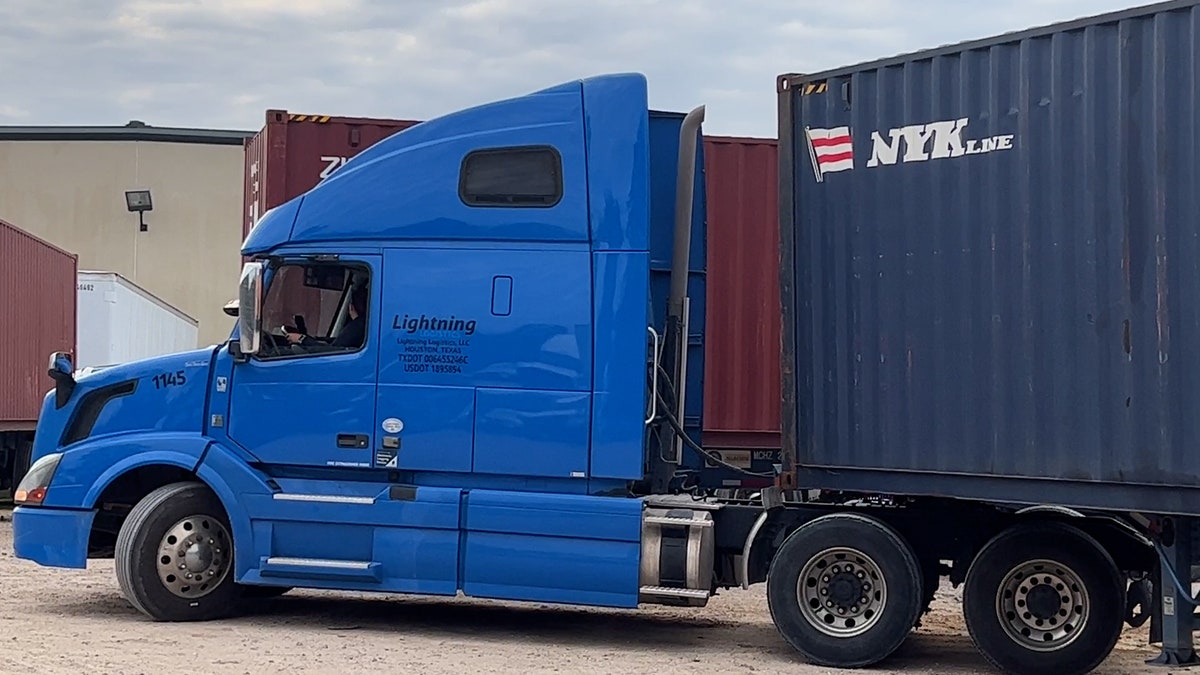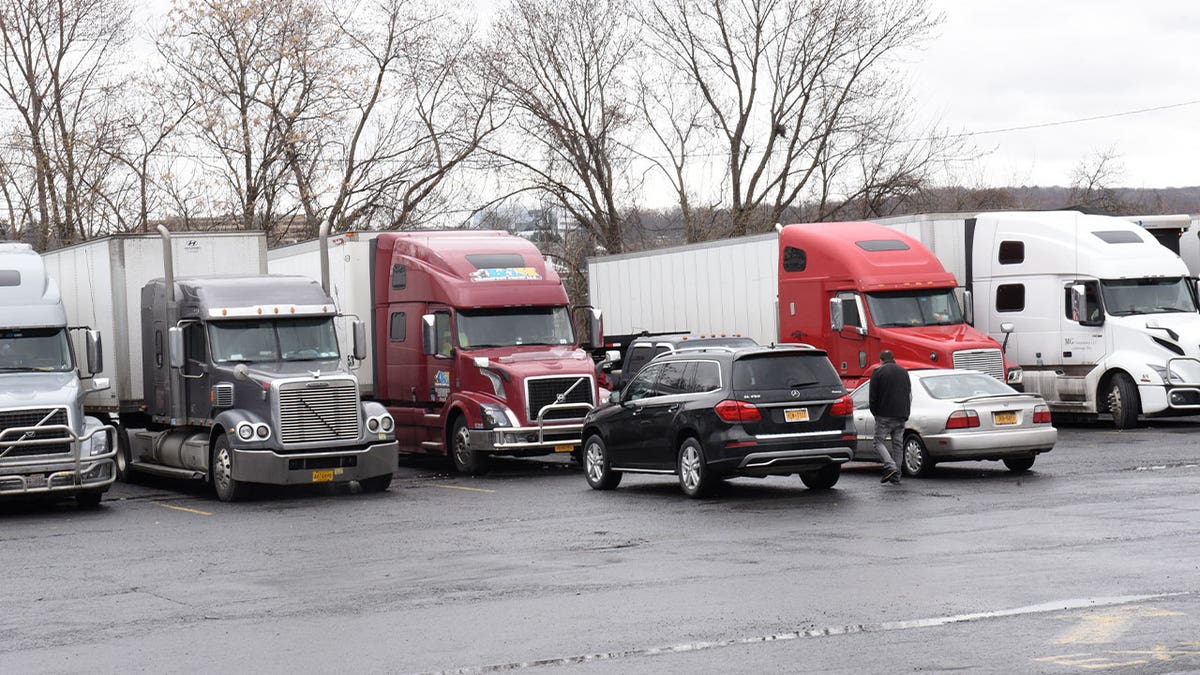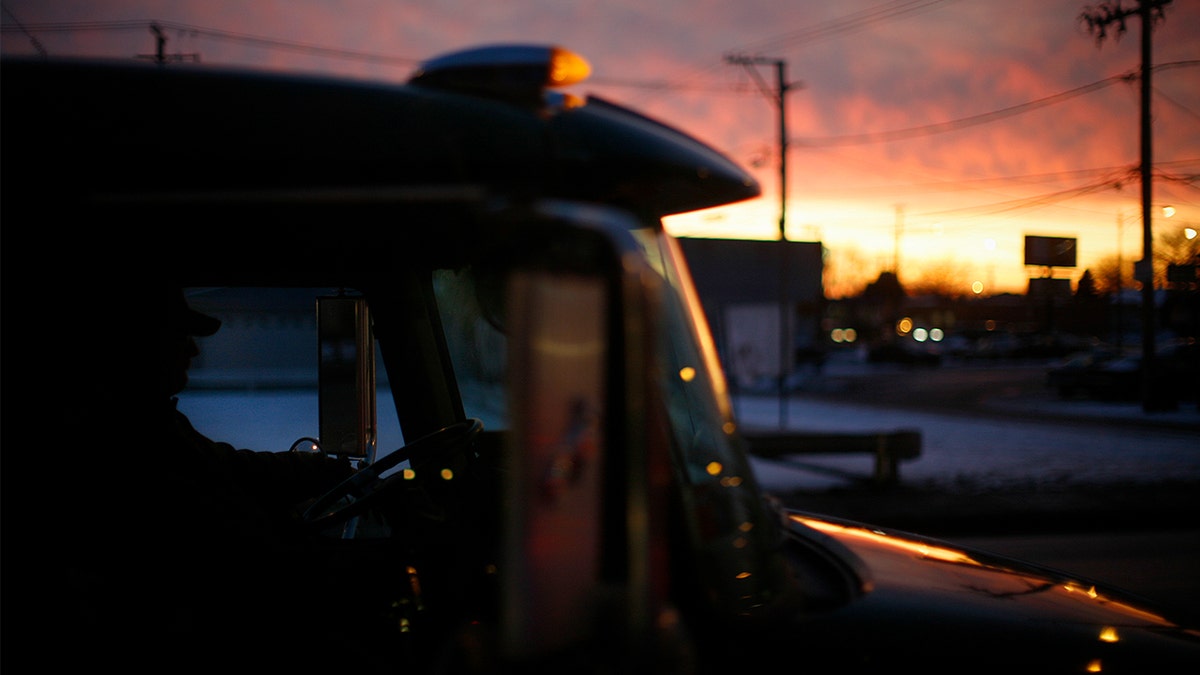Serial killers could be working as long-haul truckers in the United States.
The FBI launched its Highway Serial Killings Initiative in 2009 after analysts noticed a pattern of murdered women – most living transient lifestyles involving drug abuse and prostitution – who had been killed and dumped along the Interstate 40 corridor in Oklahoma, Texas, Arkansas and Mississippi, according to its website.
Using the Violent Criminal Apprehension Program, which is a national database between law enforcement branches that contains information on homicides, sexual assaults, missing people and unidentified human remains, analysts amassed a list of hundreds of victims along highways nationwide and hundreds of suspects, predominantly long-haul truckers.
FBI’S ‘FLAWED’ CRIME DATA HIGHLIGHTED BY CHICAGO’S 118 ‘MISSING MURDERS’: EXPERT
Frank Figliuzzi, a former assistant director of the FBI who spent 25 years with the agency, released a book this year on the subject, “Long Haul: Hunting the Highway Serial Killers.”
In the book, he writes that there have been approximately 850 murders along America’s highways since 1980, and that about 200 of them are unsolved.
FOLLOW THE FOX TRUE CRIME TEAM ON X
“Oftentimes, the people who are at the highest risk for being kidnapped or harmed by a serial killer are the people who are the most invisible, the least likely to have connections to their families and may or may not have a trafficker,” said Dominique Roe-Sepowitz, the director of Arizona State University’s Office of Sex Trafficking Intervention Research.
“The casual reference [to a woman selling sex at truck stops along interstate highways] is a ‘Lot Lizard.’ They are often very transient and often suffer from substance abuse disorders. They are very likely to not be missed, to be easily lured in by a truck driver with some money,” she said. “It’s a low level of screening and a low level of personal safety.”
ALABAMA PLUMBER ALLEGEDLY TRIED TO HIRE HIT MAN TO KILL WIFE, 6 ADULT KIDS: ‘TAKE YOUR TIME’

There are between 300,000 and 500,000 long-haul truckers in America, NPR reported, and the majority of them are upstanding workers committed to keeping the supply chain moving.
But the mobile nature of truckers’ lifestyles and the multiple jurisdictions that they travel through lends itself to a scarcity of witnesses and a lower chance of getting caught should they pick up, murder and dump vulnerable sex workers and transients.
“There are 25 long-haul truckers already in prison for multiple murders,” Figliuzzi told NewsNation. “There have been cases in the greater Cincinnati and the larger Ohio area.”
DOJ INSPECTOR GENERAL DOES NOT DENY FBI INFORMANTS WERE AMONG JAN 6 CROWD

The program led to the capture and arrest of suspects believed to be responsible for homicides across the country, according to the FBI’s website.
Supervisory Special Agent Richard J. Kolko of the FBI’s National Press Office told Fox News Digital last week that the program is “no more,” but he did not divulge specifics of the program’s results or what led to its closure.
SIGN UP TO GET THE TRUE CRIME NEWSLETTER

Roe-Sepowitz said the halted program is “just one more cut in a very bleeding situation where women who are vulnerable are simply not being seen.”
“It’s one more way that people can take advantage and participate in violence against girls and women,” she said. “There is no national tracking of traffickers.”
GET REAL TIME UPDATES DIRECTLY ON THE TRUE CRIME HUB
“Without that unit at the FBI level, that interstate level, there is nothing that is connecting those crimes,” she continued. “This is a loss for intelligence. They won’t see the patterns because who else is looking for them? The answer is no one.”
Roe-Sepowitz noted that most long-haul truckers are certainly not serial killers or sex traffickers. In fact, one group called Truckers Against Trafficking has trained 235,329 truckers to spot and intervene in human trafficking situations, according to its website.
“Truckers are not always villains,” Roe-Sepowitz said. “They can be part of the solution. They can look out for victims. They can help rescue people. They can be part of our caring, loving community. But something needs to change.”
Read the full article here

